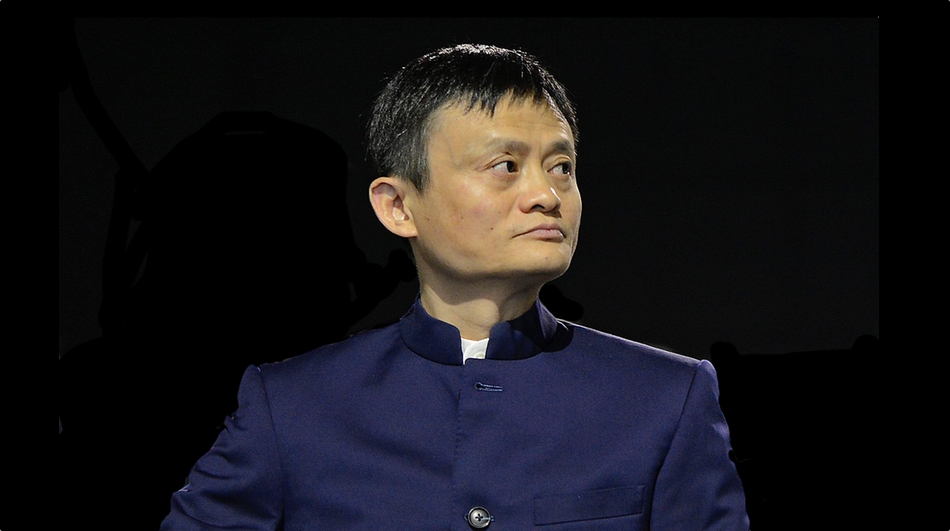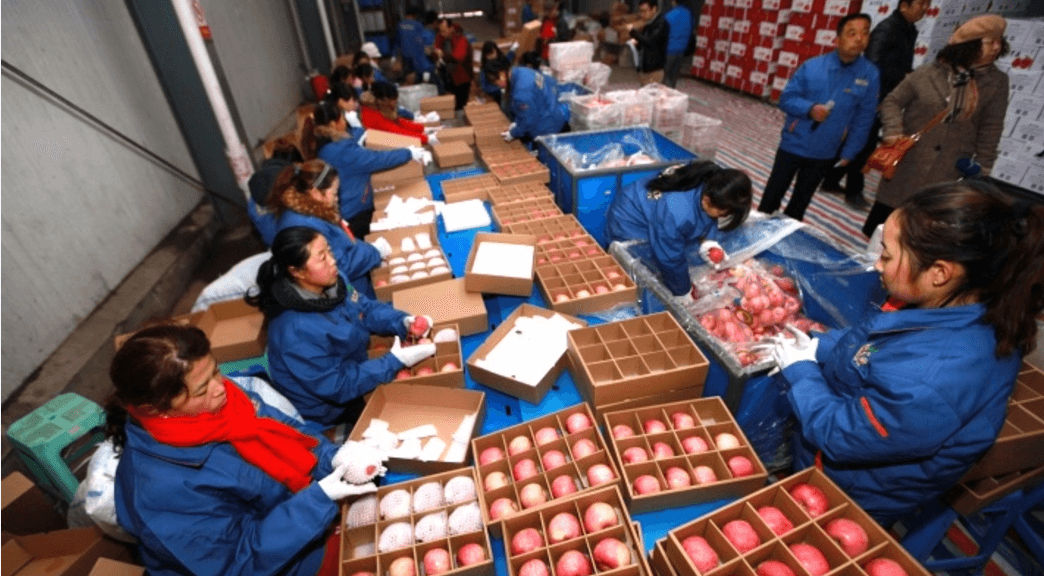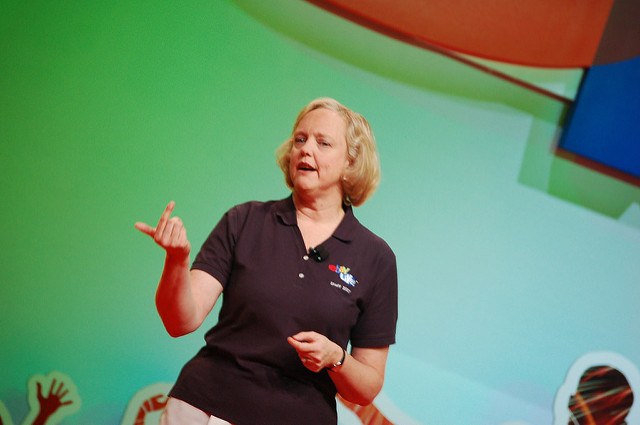
Photo modified by Tech in Asia; original photo credit: UN Climate Change.
Duncan Clark’s Alibaba: The House That Jack Ma Built is as much about the rise of China’s tech and startup scene as it is about Jack Ma.
Ma, now one of the richest men in Asia, is the founder of the Chinese online shopping behemoth. It has since ventured into logistics, finance, entertainment, healthcare, cloud computing, and lots more areas. If Alibaba’s story is the backbone of Clark’s book, the context around it – how the internet was adopted in China, the impact of SARS on the country’s online shopping industry – does the crucial work of filling out the body of the narrative.
Clark is a veteran of China’s early tech industry and a true insider. He met Ma in 1999 – the year the startup launched – and advised the entrepreneur on its international expansion strategy during the early years. Clark had the chance make a fortune from Alibaba’s IPO when Ma and Joseph Tsai, the vice chairman of Alibaba, offered him a few hundred thousand shares at the price of thirty cents in 2000. However, Clark declined; a US$30 million mistake he laments at the introduction of the book.
Despite Clark’s ties to the company, Alibaba: The House That Jack Ma Built does a good job of balancing well-earned praise of Ma and Alibaba while analyzing the company’s pitfalls and challenges. In particular, the book is packed with anecdotes and case studies of not just Alibaba executives, but other relevant players in China’s burgeoning tech landscape.
Take Jerry Yang, the former CEO and co-founder of Yahoo, for example. Originally from Taiwan, Yang struggled with English when he moved to America as a young boy. He only knew one word: “shoe.” Clark then goes on to describe the origin story of Yahoo, which starts with sumo wrestling. It turns out that Yang and David Filo, the other co-founder of Yahoo, bonded over their mutual interest in the sport and ended up taking residence in a Stanford trailer to develop what would later be known as Yahoo. In Clark’s account, Yang and Filo’s trailer is colorfully described by Michael Moritz of Sequoia Capital:
With the shades drawn tight, the Sun servers generating a ferocious amount of heat, the answering machine going on and off every couple of minutes, golf clubs stashed against the walls, pizza cartons on the floor, and unwashed clothes strewn around…it was every mother’s idea of the bedroom she wished her sons never had.”
Eleven years later, as CEO, Yang made the life-changing decision to invest US$1 billion into Alibaba and hand over Yahoo China to Ma’s company.
Clark also does an impressive job of covering the life and development of both Jack Ma and Alibaba, from Ma’s humble beginnings as an English teacher, to his gleeful takedown of eBay, to Alibaba’s more recent tensions with the Chinese government and counterfeit products.
As Clark quotes from anonymous tech entrepreneur at the end of his book: “Alibaba is more of a strategy than a story.” And therein lies many strategic lessons for entrepreneurially-minded readers.
Timing is everything
“You’re seeing the unleashing of the consumption power of the Chinese consumer.” – Joseph Tsai, executive vice chairman at Alibaba
It takes a lot more than talent and hard work to build a multi-billion dollar company. Some call it luck; others call it timing.
The beginning of Clark’s book explains the cultural and historical momentum behind Alibaba’s success. Suffice it to say that Taobao, Alibaba’s online marketplace and hugely successful business unit, hit Chinese society in all the right places at exactly the right time.
Until ecommerce took off in the early 2000s, shopping in China was generally an unpleasant experience. According to Clark, before foreign companies like Carrefour and Walmart entered China, retail chains and shopping malls were basically nonexistent. On top of that, most domestic retailers were state-owned enterprises that had no incentive to provide shoppers with basic customer service.
Real estate is another issue. Land sales make up more than a third of local governments’ fiscal revenues in China. This is a major contributor to high real estate prices in China, as the government depends on taxes and fees associated with land sales. For brick-and-mortar shops, rent is a huge part of their operational costs, which means they can’t invest as much in marketing, customer service, logistics, or human resources.

Workers pack apples to sell on Taobao, Alibaba’s online marketplace. Photo credit: Alizila.
Enter online shopping. Taobao was able to capitalize on all these pain points as an early entrant to China’s ecommerce industry. Anyone in China could open a shop on Taobao for free, sell their wares, and even haggle and negotiate with other users.
In addition, Alibaba’s ecommerce store rode the wave of internet adoption in China. When Jack Ma first experienced the internet in 1995 and started his second venture, China Pages, he was too early. At that time, almost no one in China – besides particle physicists – had access to the internet. Ma’s timing was off.
After working a government job for a few years, Ma founded Alibaba in 1999 and launched Taobao four years later. At that time, China’s three major internet portals were just getting started. It was a great time to start building an ecommerce business with more and more Chinese people getting access to the internet. It also helped that investors actually understood what the internet was by that time.
In 2008, Taobao got another boost with the Great Recession. China’s export business took a huge hit, forcing the country’s economy to turn inwards. For a marketplace that enabled local businesses cater to their countrymen’s consumer needs, the timing couldn’t have been better.
Charisma is essential
One of the main takeaways of Clark’s book is how Jack Ma’s charisma has shaped the destiny of Alibaba.

Jack Ma singing at Taobao’s 10th year anniversary celebration. Photo credit: Alizila.
From a young age, Ma was outgoing. Clark attributes his love for showmanship and oratory talent to his parents, who both loved ping tan, a type of Chinese performance that involves singing and comedy routines. Ma’s speeches also regularly draw from Chinese martial arts literature, namely the works of one of Ma’s favorite writers, Jin Yong.
His prowess as a communicator – both in Chinese and English – has won him speaking arrangements at prestigious venues and events, such as Stanford University and the APEC summit in 2015, where he was interviewed by US President Barack Obama.
It’s also helped connect Ma to countless networking and investment opportunities. For example, sealing that billion-dollar Yahoo investment was in part due to Ma’s charisma:
“It was in retrospect a big bet, but if you met Jack, and having got to know him and seeing what his vision was, you certainly thought it was worth it.” – Jerry Yang, former CEO of Yahoo
In Alibaba’s early days before it was profitable, Jack Ma’s ability to convince investors and tech executives to fund him was essential to keeping the company alive.
In China, localization matters a lot

Meg Whitman, the former CEO of eBay, who oversaw eBay’s attempt to enter China. Photo credit: Erik (HASH) Hersman.
eBay’s failure in China is a classic example of how otherwise successful multinational companies totally screw up in the Chinese market.
Clark breaks down the fall of eBay in China. The US company’s first mistake was thinking it could simply buy its way into the Chinese ecommerce industry with the purchase of a local player, EachNet. However, instead of trusting the local EachNet team, eBay made high-level and strategic decisions from its HQ in California. In China, where the market and local competitors move at lightning speed, the lag time between decision-making and action was a serious weakness.
eBay also failed to localize. The design of eBay’s Chinese website was made to match its global website. For Chinese consumers used to a more cluttered website packed with multimedia graphics and information, eBay’s website looked empty. In contrast, Taobao’s website resembles a lively, online bazaar reminiscent of street markets in China.
Finally, eBay’s ultimate folly was migrating its Chinese website to a US server. Again, this was due to the company’s lack of trust in its local team, which was actually well-equipped to handle the rise in traffic on eBay’s Chinese website, according to Clark. After the migration, thanks to China’s internet service providers, eBay’s Chinese website suffered horrific delays and timeouts that delivered the final blow to the company’s dying business in China.
While eBay pulled out, Amazon came in later and remains active. But Ma’s stores beat Amazon by a large margin.
The future of Alibaba and Jack Ma
The last chapter of Alibaba: The House That Jack Ma Built ends with a quick summary of the challenges that lie ahead of Jack Ma and Alibaba, including counterfeit products and the rise of new and diverse competitors, namely Tencent and its wildly popular WeChat app, which recently snatched the title of China’s most valuable tech company from Alibaba.
Still, Clark ends on a positive note, calling Jack Ma “the ultimate pragmatist” and betting on Ma’s ambition to overcome future challenges.
For anyone who wants to understand the mechanics behind Alibaba’s success, is curious about why foreign companies fail in China, or is generally interested in China’s tech scene, this book is a worthy read.








